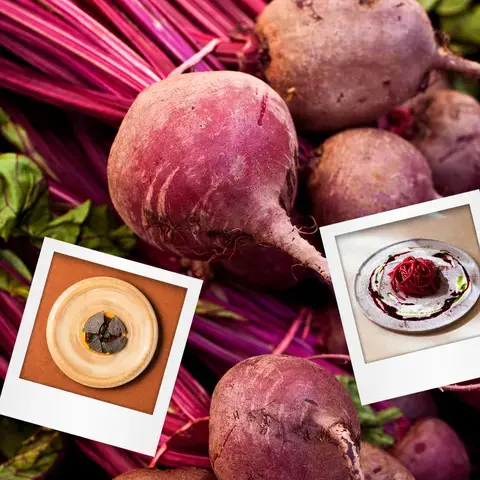“Everybody on the trial filled out a paper questionnaire for two weeks, comprised of 37 questions, without knowing if they got the drug or a placebo. And it turned out that there was no difference in the viral load."
“One of the questions was about the loss of smell and taste, and that was a remarkable finding. That the camostat nearly prevented the loss of smell and taste, starting at the very beginning, from the day of entry into the trial."
“Within three days of a positive test, you entered the trial, you either got camostat or you got a placebo, and then we measured all the different things. We saw that if you took camostat within three days of a positive test, you pretty much didn’t lose your sense of smell and taste, compared to the group that got the placebo.”
The long-Covid effects
For chefs, whose livelihoods depend on an ability to taste, and who have invested time and money in the development of their palette, taste loss can be devastating. The successful development and deployment of the Covid-19 vaccine means that people contracting the virus today are significantly less likely to end up in ICU than a year ago. But we are increasingly becoming aware of the effects of so-called 'long Covid', which can come from even mild cases of the disease. One of those effects is the loss of smell and taste, but some report a severe dysfunction in their sense of taste, where normally appealing foods begin to taste terrible, reportedly like rotten meat.
“It’s variable,” says Vinetz. “Some people get it back in days, for some people it takes weeks, some people months, some people never get it back. But it’s not just the loss of smell and taste, it’s making that sense abnormal, it’s called parosmia. Coffee might taste off or rancid, other things might taste terrible and people really don’t like that. It doesn’t just make you disinterested in food, but it makes everything taste worse.
“I am told that this is a particularly debilitating condition, particularly if your livelihood depends on your sense of smell and taste.”
While we can’t be sure about why or how camostat seems so effective at preserving our sense of taste through Covid-19, there are some good guesses as to what it could be. It would appear that the drug affects a set of cells that support the olfactory nerve cells on the nose.
“Taste is related to the sense of smell,” says Vinetz. “Our first cranial nerve, called the olfactory nerve, goes right into the top of the nose. It literally connects to the upper part of the nose through this cribriform plate at the top and there are these sensory nerve cells there."
“The nerve cells are very delicate so they have to be supported by other cells. In the case of the olfactory cells they have surrounding cells called sustentacular cells, and these cells are epithelial cells, cells that line the upper respiratory tract and are specialised to help support and protect the olfactory nerve cells. And it’s thought that camostat may affect those cells, so they don’t get damaged by the virus. So you theoretically protect the loss of smell and taste."
Dr Vinetz’s work looks like a breakthrough, but he is quick to urge caution on the data and the findings. For him there is enough there to warrant further investigation, this was a very small trial, but that would require vast funding and a lot of work.
“It’s incredible and it’s statistically significant,” he says. “But we are always cautious about interpreting the data. It would probably cost tens of millions of dollars to do a trial. We would need hundreds or even thousands of people to enter a trial to see if it works and then to design it properly to understand how it works just for smell and taste. I always think it would be useful to make a better drug. Camostat has some medicinal chemistry problems, so there should be a way to make a better molecule. It could be a very interesting adjunct in the treatment of long Covid, we don’t know. We do know it has a lot of promise to it.”
















